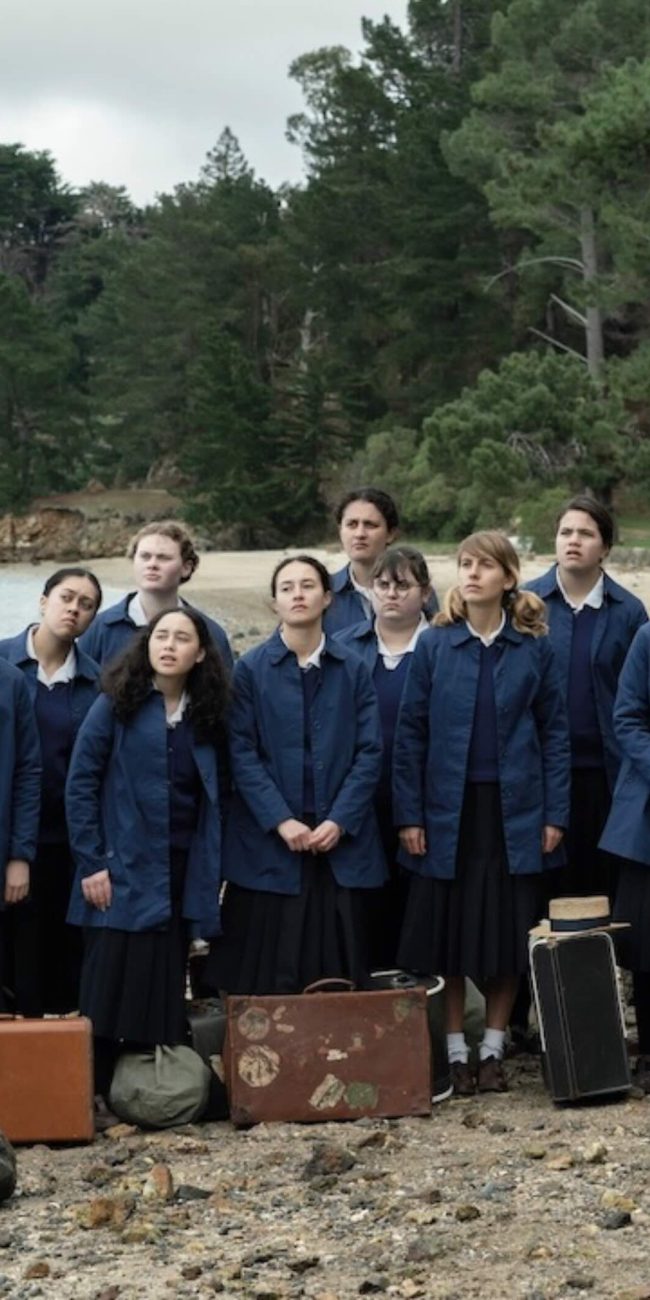WE WERE DANGEROUS

(Check out Chris Reed’s We Were Dangerous movie review, It starts April 18 in L.A. before a nationwide rollout. Seen it? Join the conversation with HtN on our Letterboxd Page.)
In director Josephine Stewart Te-Whiu’s debut feature, We Were Dangerous, the time is 1954 and the place New Zealand. The subject is the subjugation—and forced Christianization—of young women and girls, many of them indigenous Māori, in the name of education and ostensible rehabilitation. The twist is that the adult in charge of them is herself Māori, though devoutly religious, imposing the rule of law and order that have given her own life a warped purpose onto her unwilling pupils. Hurt people hurt people.
Te Whiu, working off a screenplay by Maddie Dai, primarily focuses on three of the prisoners—excuse me, students—who make friends after capture. They are Nellie (Erana James, Uproar), Daisy (Manaia Hall), and Lou (Nathalie Morris, Petrol), the first two Māori and poor, the last one white and rich. They bond as rebels among outcasts, looking for a way to strike a blow against the system that sees them as dangerous.
Rima Te Wiata (The Breaker Upperers) stars as “The Matron,” a complex role. She delivers a powerful performance that mixes equal parts horror and humor (like much of the movie). Given the scenes we see of her childhood and the clear whitewashing of culture in New Zealand, there’s even a little sympathy left over for her at the end. A little.
What most resonates is the devastating impact of race, gender, and social class on an individual’s prospects in life. Anyone who deviates from the expected norm will be pushed into as small a box as possible to smooth out their offending edges. Our protagonists refuse to go quietly, however.
As gloomy as that theme sounds, the movie nevertheless manages to pull off an ebullient vibe, thanks to the three leads and some gorgeous cinematography (courtesy of María Inés Manchego, The Subtle Art of Not Giving a F*ck), helped along by a stunning (if bleak) island location. That’s where the girls are shipped after they prove a little too resourceful in planning an escape.
All along, the specter of coerced conformity looms, in addition to even worse threats. What is one to do when the power lies entirely in the hands of the European patriarchy and its handmaidens? That is the crux, and joy, of the narrative.
We Were Dangerous discusses ideas just as important today as they were in the period represented. Perhaps even more so, given the rise of fascists everywhere. It is possible to fight back while never losing hope (or a sense of humor). Bullies hate pushback and, especially, gaiety at their expense. So laugh away, while never forgetting the seriousness of it all.
– Christopher Llewellyn Reed (@ChrisReedFilm)
Josephine Stewart Te-Whi; We Were Dangerous











